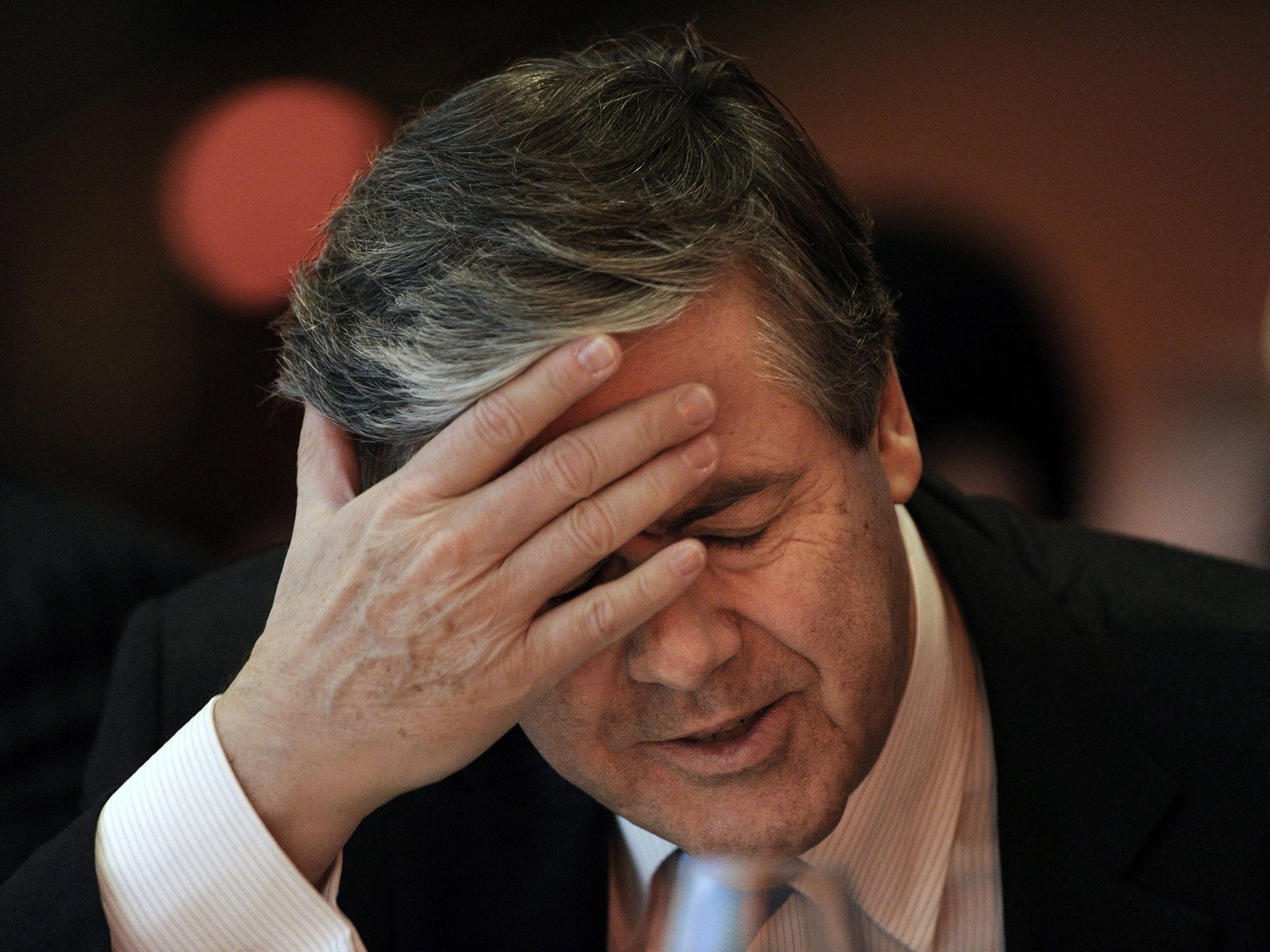Stress, the Swiss and suicide: The death of a senior executive at Zurich Insurance has turned an unwelcome spotlight on the country's business culture

The former chairman of one of the world's largest insurance companies has been named in a suicide note left by a senior executive at the company in a move that has sparked one of the most unexpected corporate scandals in recent years.
Josef Ackermann resigned as chairman of Zurich Insurance on Thursday following the death of its finance director, Pierre Wauthier, earlier this week. The body of the 53-year-old, who was married with two children, was found at his home in Switzerland on Monday.
Mr Wauthier's widow, Fabienne, is said to have accused Zurich's top management of driving her husband "into a corner" and that Mr Ackermann's "tough management style" had placed him under intolerable pressure.
The insurer confirmed yesterday that Mr Wauthier had left a suicide note that named Mr Ackermann, a former Deutsche Bank boss appointed to head Zurich last March.
"We were informed that such a letter exists and we are aware of its contents," stand-in chairman Tom de Swaan said in a press conference.
"It is correct that it relates to the relationship between Pierre Wauthier and Josef Ackermann. It would be inappropriate for me to elaborate on it. It's a very difficult situation especially for the family and friends of Pierre Wauthier and we all need to respect their privacy during this difficult time. We all deeply regret his passing, which was completely unexpected."
Zurich said it would investigate whether excessive pressure was put on Mr Wauthier ahead of his suicide. Mr De Swaan said he was not aware of any inappropriate behaviour among the company's directors.
Mr Ackermann did not comment yesterday, but on Thursday hinted he would fight any claims of wrongdoing when he said: "The unexpected death has deeply shocked me.
"I have reasons to believe that the family is of the opinion that I should take my share of responsibility, unfounded as any allegations might be.
"As a consequence, I see the possibility of a continued successful board leadership to the benefit of Zurich called into question."
The news has rocked the company, which has thousands of policyholders in the UK and has prompted calls for greater support for boardroom executives. It comes five weeks after the death of Swisscom boss Carsten Schloter, who apparently committed suicide.
"The Swiss culture may be partly a cause of the recent sad deaths of two of its most senior and respected executives," John Ainley, founder of The Leaders' Coach, says.
"It is an extremely polite culture, where the desire for privacy and propriety means that difficult personal issues are not readily discussed.
"The Swiss shun inquisitiveness and do not pry. It may be harder for a senior Swiss executive to ask for help than in other, more open cultures."
Executive suicides are rare and do not only happen in Switzerland of course. However, experts say it is now more important than ever to recognise the pressures on businessmen and women across the world.
"Executives are becoming increasingly isolated and under more pressure," Mr Ainley adds.
"The requirement for short-term performance causes the executive to consider evermore radical ways of creating profit.
"The chairman's role has subtly changed. They used to be the experienced father figure that executives could turn to for wise counsel, but, because of regulatory change and the fear of personal reputational damage, some chairs are more focused on satisfying shareholders and the regulator. This leaves a support gap for the executive that has to be filled if we are to avoid increasing levels of stress."
In the UK, the most recent high-profile case of corporate stress involved Lloyds Banking Group boss António Horta-Osório. He took temporary sick leave in late 2011 because of stress and exhaustion. Mr Horta-Osorio was in the middle of implementing his strategic vision for the bank when he started having trouble sleeping, but it was not until his wife Ana became increasingly worried that he sought help.
Others to compain of stress include former HBOS chief executive Andy Hornby who resignedfrom Boots in 2011 to take a break after what he said was "an intense five years as CEO of two major companies".
Dr Richard Bowskill, consultant psychiatrist at the Priory Group, said: "High-functioning executives are used to being successful. For most of their lives they have worked hard and reaped the dividends.
"They struggle when they become overloaded – their sleep patterns are affected, they become irritable and often they don't heed the warning signs, as others would do. There comes a tipping point when they can fall into a depression.
"It is a problem in the modern world especially for those who have international jobs and work across different time zones. The advent of Blackberrys and other mobile devices means people are constantly in contact with the office – even on holiday – which can also cause problems.
"I look at it in terms of running. If your knee starts hurting you should rest it. You don't run a marathon. People should think of work stress in that way."
The victim: Telecoms boss
Pierre Wauthier's death has reverberated across Switzerland and comes just weeks after the suicide of telecoms executive Carsten Schloter.
The chief executive of Swisscom AG was found dead in his Freiburg home in July with reports suggesting he suffered from permanent stress and had become dangerously addicted to his smartphone since the break up of his marriage in 2009.
The German-born executive joined Swisscom over a decade ago as head of its mobile phone division. He became CEO in 2006 and subsequently turned the company into Switzerland's leading telecoms group.
Subscribe to Independent Premium to bookmark this article
Want to bookmark your favourite articles and stories to read or reference later? Start your Independent Premium subscription today.

Join our commenting forum
Join thought-provoking conversations, follow other Independent readers and see their replies